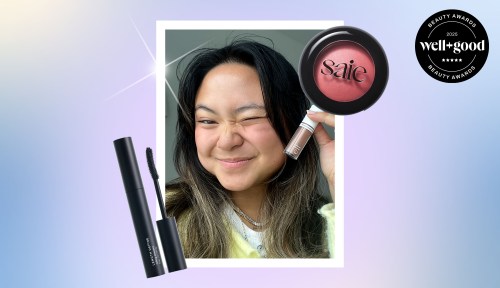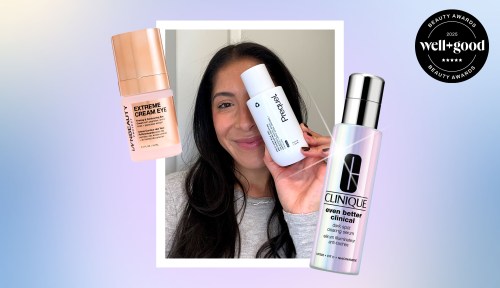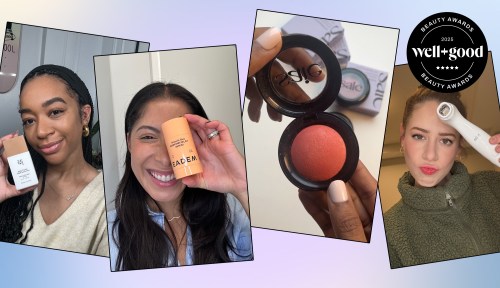Marijuana has always intimidated me. The very mention of it has me flashing back to the older boys in high school who were always trying to get me into trouble—not to mention innumerable deadbeat stoner ex-boyfriends, including one who made me take him to the emergency room because he got *too* high. (Yeah, good times.) Though many, many people have recommended I test it out to ease my chronic insomnia, I’ve never really been able to get comfortable with reaching for cannabis, albeit for a medicinal reason.
Now that it’s legal here in Los Angeles, however, I’m starting to see the plant in a new light. On my maiden visit to MedMen—billed as “the Apple store of dispensaries”—I couldn’t believe how user-friendly the industry has become. The store’s minimalist shelves are stocked with cannabis-based products such as tinctures, balms, and edibles, in addition to well-labeled plants marketed towards the treatment of specific issues (e.g. my aforementioned insomnia) or goals, such as enhanced creativity.
Despite this newfound accessibility, however, I still find myself hesitant to try products without any real knowledge of the plant. How much is 2.5 mg of THC? Will I feel pleasantly relaxed or paranoid? So, to answer this and more burning questions, I’ve enlisted a little (okay, a lot) of help from some heavy hitters in the cannabis world: Sean Akhavan, MedMen’s head research scientist; Jessica Asaf, The Cannabis Feminist; Jeff Chen, Director of UCLA’s Cannabis Research Initiative; and Hamp J. Atkinson, MD, co-director of the Center for Medical Cannabis Research (CMCR) at the University of San Diego. If you, too, live in a legalized state, share in my newfound knowledge below.
Keep reading for a little cannabis 101.

Not all cannabis will have the same effect
You know how red wine makes you sleepy and yet with rosé, you feel like you can go all day? (But of course you never would.) This is a similar concept. Different types of cannabis will have different effects on the mind and body and can therefore be used for different purposes, e.g. sleeping versus creating. “There are two major strains of the cannabis plant,” explains Akhavan. Indica strains are associated with deep body relaxation and are typically used as a way to wind down after a long day or before bed. Sativa strains, on the other hand, are known for their energizing, euphoric effects.
While this concept may sound black and white, Akhavan tells me it’s not as though these are two separate plant types entirely. (More on this further down.) “All cannabis plants grown in North America are a hybrid of both strains, with some expressing more sativa or more indica characteristics, or a balance of both,” he explains.
Need help remembering which is which? Use this cute mnemonic: “An easy way to think of it is ‘in-di-couch,'” Akhavan says. (As in, indicas make you mellow, calm, even sleepy—AKA glued to your couch.)
There are various components of cannabis
A lot of current cannabis buzz involves separating CBD and THC—a distinction that can be confusing for a rookie (*raises hand slowly*). Akhavan explains that these are not different types of cannabis, but rather different components of cannabis. “There are more than 100 different chemical compounds in the cannabis plant; these are called cannabinoids,” he says. “The two most well-known cannabinoids are tetrahydrocannabinol (THC) and cannabidiol (CBD).” THC is the psychoactive element of the plant that produces a “high” or euphoric feeling, while CBD is associated with some of the purported therapeutic effects of the whole plant—pain management, anxiety reduction, improved sleep, and decreased inflammation—without the high.
With CBD, you can experience the benefits of cannabis without the “high.”
Know, though, that most of these healing effects are anecdotal. This is because research that proves (or disproves) these benefits is relatively early-stage. “There are preliminary animal studies showing anti-depressant, anti-anxiety, and sleep-inducing properties of both THC and CBD,” says Jeff Chen, MD/MBA, Director of UCLA’s Cannabis Research Initiative, though he adds that animal studies often don’t translate to humans. “There’s one preliminary human study with CBD that showed it improved anxiety symptoms in people who have social anxiety. And there’s moderate evidence [in human studies] of cannabis or cannabinoids improving short-term sleep outcomes in individuals whose sleep is impacted by certain conditions, like obstructive sleep apnea, fibromyalgia, chronic pain, and multiple sclerosis.”
How do these cannabinoids factor into which strain of cannabis is right for your purposes? Indicas are typically associated with higher levels of CBD whereas sativas are typically higher in THC. However, if you’re looking to try cannabis but fear any psychoactive effects, Cannabis Feminist founder Jessica Assaf recommends you start with CBD only. “This will enable you to experience the benefits of cannabis without ‘the high,'” she says. “You can find CBD tinctures, topicals, edibles, and even flower to smoke.”
Cannabis now comes in myriad forms
I don’t like to smoke anything—for good reason: It’s simply not good for your health. But, it turns out, an aversion to lighting up isn’t a problem for cannabis users these days. Vape pens are one alternative I’ve tested. Compared to the old-school rolling and burning of a joint, they’re super easy for a newbie: You simply insert a cartridge of cannabis oil. Dosist (formerly called hmbldt) makes it even easier; its pens don’t even require cartridges. Instead, they’re pre-loaded with a certain number of doses of cannabis specifically formulated for various purposes (e.g. sleep, calm, relief). When you’ve inhaled one dose, the pen buzzes to let you know.
It’s really cannabis-infused products, however, that are all the rage right now. You can consume the plant in modern edibles such as gummies or chocolates, slather it onto your skin in a balm or oil to ease muscle aches and localized pains, take it under the tongue as a tincture, and even slip in a suppository (a company called Foria markets its products for PMS-related cramping).
The #1 rule of Cannabis Club is to start small
As the aforementioned ex-boyfriend who ended up with an embarrassing emergency room bill will tell you, you do not want to overdo it when testing out cannabis products or plants that contain THC. “The biggest mistake you can make in your cannabis journey is starting with too high of a dose,” says Assaf. “Start slowly with one puff and wait five minutes to evaluate how you feel. Or, if you’re trying a tincture or edible, a 5 milligram dose is a safe place to start.” (Don’t worry, the dispensary you buy from, like at MedMen, will have the amount clearly labeled.)
“The biggest mistake you can make in your cannabis journey is starting with too high of a dose.” —Jessica Assaf, Cannabis Feminist
Akhavan agrees, suggesting an even more conservative route for novices. “A consumer should start with the smallest amount possible to gauge their tolerance level,” he advises. “Some edibles come in doses as little as 2.5mg of THC.” For vaporizing or smoking, he suggests one “hit,” which is a one-to-two-second inhale, and then waiting 10 minutes before trying another. “Ingesting, inhaling, or smoking cannabis in small increments is called micro-dosing, and it is recommended for all new consumers,” he says.
When it comes to CBD-specific products, however, Akhavan says it’s not as critical to watch the level of intake. “Users can also micro-dose CBD,” he says. “However, since CBD doesn’t have psychoactive effects, side effects from taking too much CBD-only products are not as much of a concern.”
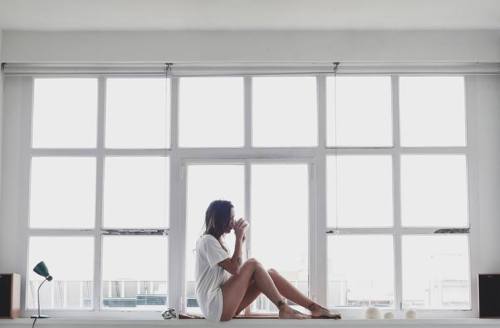
Hydration might matter
You probably know that it’s best to drink a glass of water after every glass of wine, but hydration may not be something you’ve considered to be of great import when it come to cannabis. Assaf, however, says it should be. “Because cannabis is an enhancer, it can cause dehydration if you’re not properly hydrated to begin with,” she explains. “Industry experts have also told me that dehydration may cause anxiety after cannabis use, so be conscious of drinking water before and after partaking of the plant.”
When I ask Dr. Atkinson (of the University of San Diego’s Center for Medical Cannabis Research) about this, he tells me that he’s not aware of any evidence that dehydration can affect the quality of a high, but offers a caveat. “Cannabis may alter blood pressure and heart rate, and these may be affected by dehydration,” he explains. “So, in an indirect way, dehydration may enhance anxious feelings—for example, a rapid heart rate may leads to a sense of anxiety.” IMHO, better safe than sorry on this one; here’s how to know just about much water to drink per day.
Expect trial and error
While yes, as mentioned before, in general, sativas will make you wired and indicas will put you to sleep, it’s not quite so simple. This is a good rule of thumb to follow when selecting strains, but cannabis affects every single human differently. “Whether you’re experimenting with edibles, flower, or topicals, it’s important to note that everyone reacts differently to cannabis and cannabis-infused products based on metabolism, tolerance levels, or even what you ate prior,” says Akhavan.
Assaf agrees, citing her own personal experience as an example. “Sativa strains, which are supposed to give you energy, make me feel anxious,” she says. “Meanwhile, indicas make some people feel tired, but these strains give me energy.” Her advice is to begin by sampling at least five strains (one at a time!) including a sativa, an indica, and a hybrid, saying, “With trial and error, you will start to figure out the best personal regimen that works for you.”
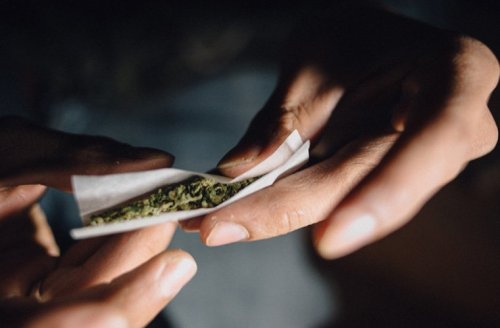
Use cannabis with intention—and know that it’s not for everyone
Assaf’s advice comes with a clear (and wise) warning: “If you don’t know why you’re using cannabis, cannabis may start to use you,” she says. “Much of the laziness of the ‘stoner stigma’ comes from the tendency to use cannabis habitually without a clear reason or desired outcome.” The key, she says, is setting an intention before using. “Believe in the power of the plant to heal,” she suggests.
Even if cannabis is legal where you live, this doesn’t mean it’s necessarily right for you. “You should always consult with your doctor before using any supplement or medicine, including cannabis,” says Akhavan. This sentiment is echoed by Dr. Atkinson: “I would also caution that cannabis not be used by women who are pregnant, breastfeeding, or who have a prior history of a heart attack,” he says. At this, shall we say, budding stage, there’s just not enough research to know the long-term benefits and potential harms.
There’s one health-related caveat to CBD-specific usage, too. Once you’ve checked it’s safe for you, feel free to enjoy cannabis-infused cocktails, water, coffee, and even fro-yo.
Sign Up for Our Daily Newsletter
Get all the latest in wellness, trends, food, fitness, beauty, and more delivered right to your inbox.
Got it, you've been added to our email list.






